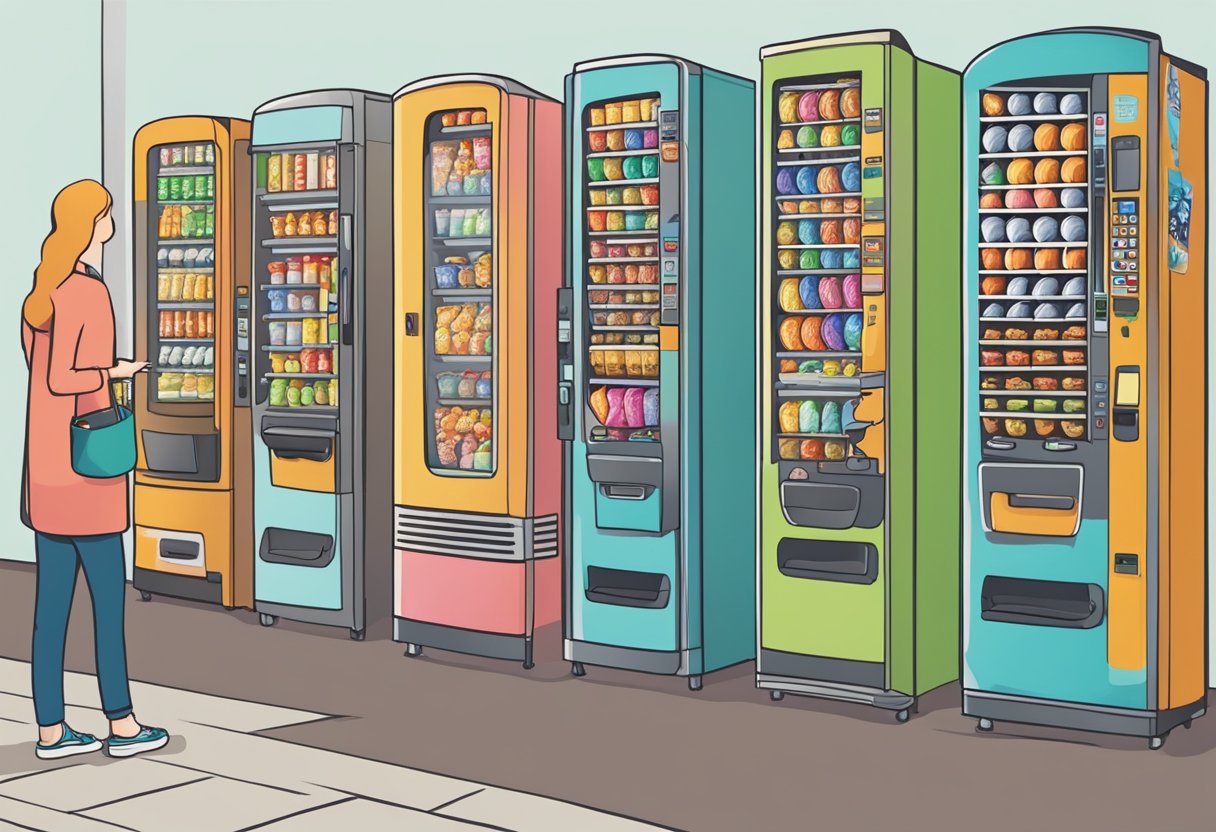Starting a vending machine business can be a lucrative way to earn passive income. With the right strategy and approach, setting up a vending machine business can be a great way to earn a steady stream of revenue. In this article, we will explore the key steps to starting a vending machine business, including understanding the vending machine business, setting up your vending machine business, and answering frequently asked questions.
Understanding the vending machine business is the first step to starting a successful vending machine business. This includes researching the market and identifying the best locations for your machines. It’s also important to consider the types of products you want to sell, such as food and drinks, bulk vending, or specialty items. Once you have a clear understanding of the vending machine business, you can start setting up your vending machine business.
Setting up your vending machine business involves several key steps, including choosing the right vending machines, identifying the best locations, and securing financing. You will also need to develop a marketing strategy and establish relationships with suppliers and distributors. With the right approach, you can build a successful vending machine business that generates a steady stream of revenue.
Key Takeaways
- Understanding the vending machine business is key to starting a successful vending machine business.
- Setting up your vending machine business involves choosing the right vending machines, identifying the best locations, and securing financing.
- Developing a marketing strategy and establishing relationships with suppliers and distributors can help you build a successful vending machine business.
Understanding the Vending Machine Business
Starting a vending machine business can be an excellent way to generate passive income. Vending machines are a part of the vending machine industry, which is worth around $18 billion as of 2023.
A vending machine business involves purchasing one or more vending machines and placing them in high-traffic areas, such as schools, offices, and shopping centers. The vending machines can sell a variety of products, from snacks and beverages to toys and electronics.
There are different types of vending machines, including bulk vending machines, specialty vending machines, and more. Bulk vending machines dispense small items such as gumballs, candy, and toys. Specialty vending machines, on the other hand, dispense specific products such as coffee, ice cream, and cigarettes.
Starting a vending machine business requires an initial investment, which can vary depending on the number of vending machines purchased, the type of vending products sold, and other factors. Vending machine costs can range from a few hundred dollars to several thousand dollars per machine.
Vending machine sales can generate significant revenue, but it is important to consider the costs associated with running the business. These costs include the purchase of vending machines, the cost of vending products, and the cost of maintenance and repairs.
To start a vending machine business, it is important to research the industry and understand the market. This includes identifying potential locations for vending machines, understanding the competition, and determining the best vending products to sell.
Overall, starting a vending machine business can be a profitable venture for those who are willing to invest the time and money required to get started.
Setting Up Your Vending Machine Business
When starting a vending machine business, there are several key steps to take in order to ensure success. Here are some important considerations to keep in mind:
Choosing Your Vending Machines and Products
One of the first decisions to make when starting a vending machine business is what type of machines and products to offer. Consider the market you will be serving and the types of goods that will appeal to that demographic. Some popular options include healthy snacks, beverages, and specialty items. Stock the machine with a variety of options to appeal to a wider range of customers.
Scouting and Securing Locations
Location is key to the success of a vending machine business. Look for high-traffic areas such as schools, airports, and train stations. Scout potential locations and secure contracts with property owners or managers before placing machines. Be sure to comply with any licensing or permit requirements for the area.
Calculating Costs and Profits
Startup costs for a vending machine business can be relatively low, but it is important to factor in maintenance costs, taxes, and other expenses. Conduct market research to determine the potential profitability of your business and create a budget that takes into account upfront costs as well as ongoing expenses.
Planning and Running Your Business
Create a business plan that outlines your route, inventory, and marketing strategy. Consider competition in the area and look for ways to differentiate your business. Be sure to obtain any necessary licenses and permits and register for an Employer Identification Number (EIN). Consider equipment financing or a loan to help cover startup costs.
Providing Excellent Customer Service
Customer service is key to the success of any business, and vending machine businesses are no exception. Provide clear contact information for customers and consider implementing remote monitoring and electronic payment options. Offer promotions and referral programs to encourage repeat business and positive word-of-mouth.
Frequently Asked Questions
What are the average monthly earnings for a vending machine business?
The average monthly earnings for a vending machine business can vary depending on the location, type of products sold, and number of machines owned. According to Forbes Advisor, a single vending machine can generate anywhere from $50 to $300 per month in profits. However, a successful vending machine business with multiple machines can earn upwards of $5,000 per month.
Where are some good locations to place vending machines?
Good locations for vending machines include high-traffic areas such as shopping malls, hospitals, schools, and office buildings. According to NerdWallet, it’s important to find locations that have a lot of foot traffic and limited food and drink options nearby.
What are some common mistakes to avoid when starting a vending machine business?
Common mistakes to avoid when starting a vending machine business include choosing the wrong location, overstocking or understocking machines, and not keeping machines clean and well-maintained. Tillful recommends researching the market, choosing the right products, and setting realistic goals to avoid common pitfalls.
What are the legal requirements for starting a vending machine business?
The legal requirements for starting a vending machine business can vary by state and locality. In general, vending machine business owners need to obtain a business license, register for sales tax, and comply with health and safety regulations. Newfoundr recommends consulting with a lawyer or accountant to ensure compliance with all legal requirements.
How do you determine the right price for vending machine products?
The right price for vending machine products can depend on the cost of the products, the location of the machine, and the competition in the area. According to HubSpot Blog, it’s important to research the market and set prices that are competitive but also profitable.
What are some tips for finding affordable vending machines for sale?
Tips for finding affordable vending machines for sale include searching online marketplaces such as eBay and Craigslist, attending vending machine trade shows, and contacting vending machine distributors directly. Tillful recommends comparing prices and features of different machines to find the best deal.



